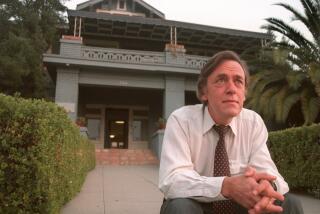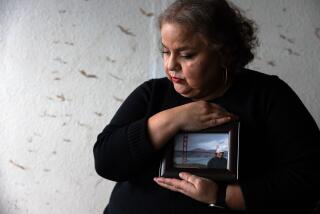Immigrant’s law license case in California could affect others

In a first-of-its-kind ruling in the nation, the California Supreme Court has allowed an immigrant without legal status--Mexican Sergio Garcia--to practice law in the state.
The unanimous ruling by the California Supreme Court on Thursday to allow a Mexican immigrant to practice law in the state could ease the way for others in similar circumstances, immigrant-rights advocates say.
The ruling was the first of its kind in the nation, and decisions in similar cases are pending in New York and Florida.
In the California case, the state Supreme Court agreed unanimously that Sergio C. Garcia -- who passed the bar examination four years ago -- should receive a law license while awaiting federal approval of his green card application.
The court, which has the final word on licensing lawyers, said it was able to approve Garcia’s admission to the state bar because the Legislature had passed a law last year that cleared the way.
The Legislature acted after the justices in a September hearing indicated that federal rules required that they deny Garcia, 36, a law license. According to a 1996 federal law, states may not award public benefits to immigrants who lack legal status unless legislatures specifically approved exemptions.
The law signed by Gov. Jerry Brown in October provided that exemption for law licenses.
James Wagstaffe, who represented the state bar in its efforts to admit Garcia, called Thursday’s decision “a landmark case in favor of inclusiveness.”
“It is not just about undocumented immigrants,” Wagstaffe said. “It is also saying we are going to decide the qualifications of a lawyer based on individual character, not based on class.”
Garcia, a resident of Chico, came to the U.S. with his family when he was 17 months old. He returned to Mexico when he was 9 and reentered the U.S. without authorization when he was 17. His father, an agricultural worker who obtained U.S. citizenship, applied for a green card for his son in 1994. The federal government accepted the petition in 1995, but Garcia is still waiting for the card.
ALSO:
Killing of priest in Eureka appears random, police say
City College of San Francisco to remain accredited pending trial
Mother left son with transients to celebrate New Year, deputies say
Twitter: @mauradolan
More to Read
Start your day right
Sign up for Essential California for news, features and recommendations from the L.A. Times and beyond in your inbox six days a week.
You may occasionally receive promotional content from the Los Angeles Times.







